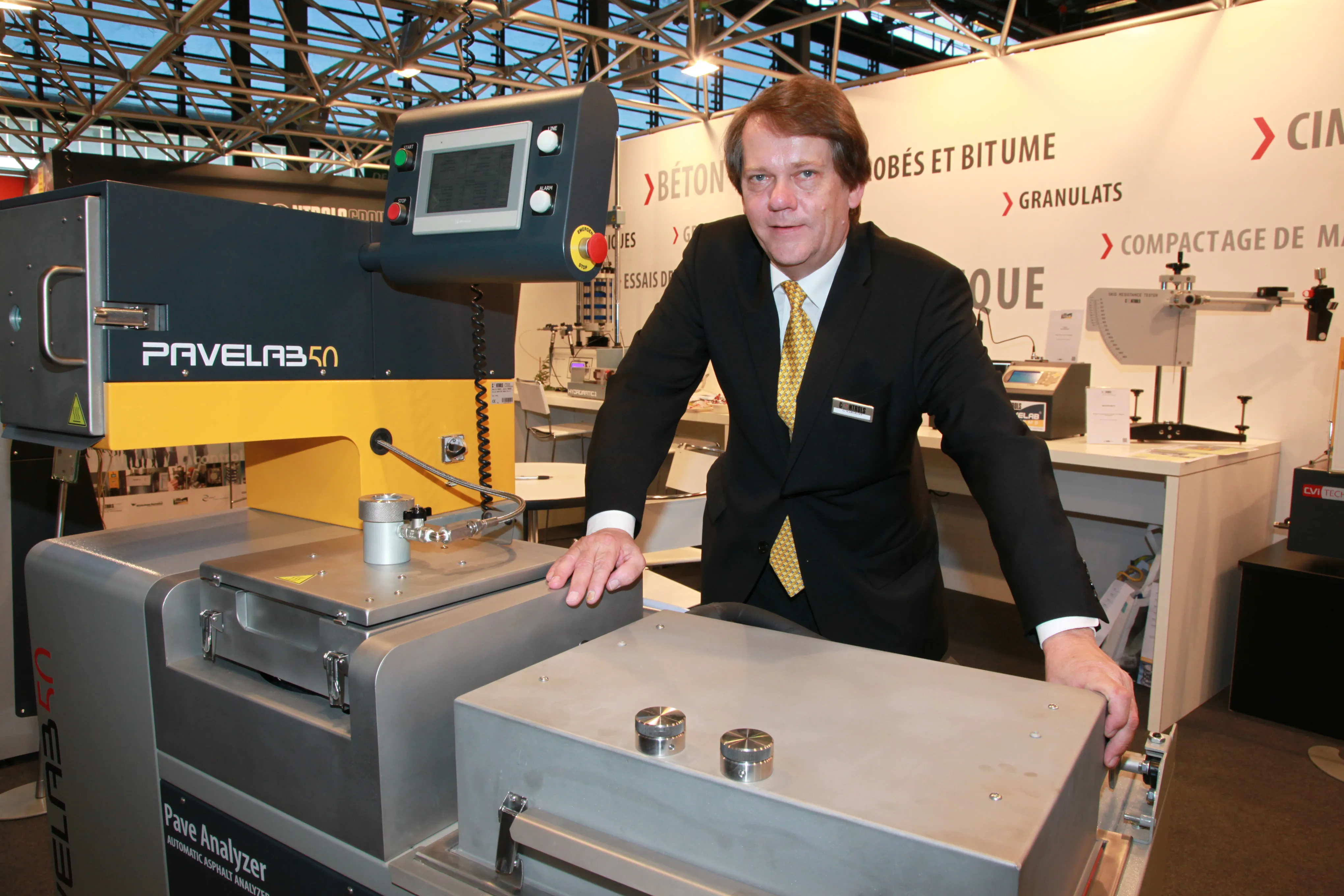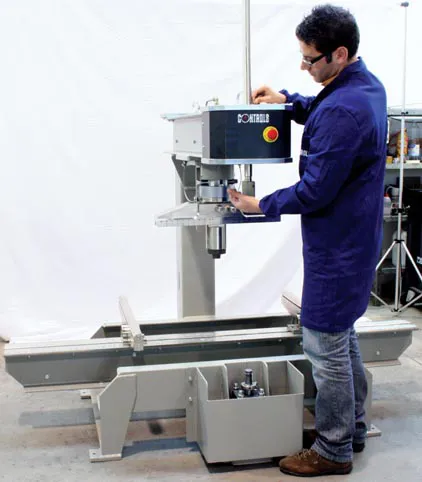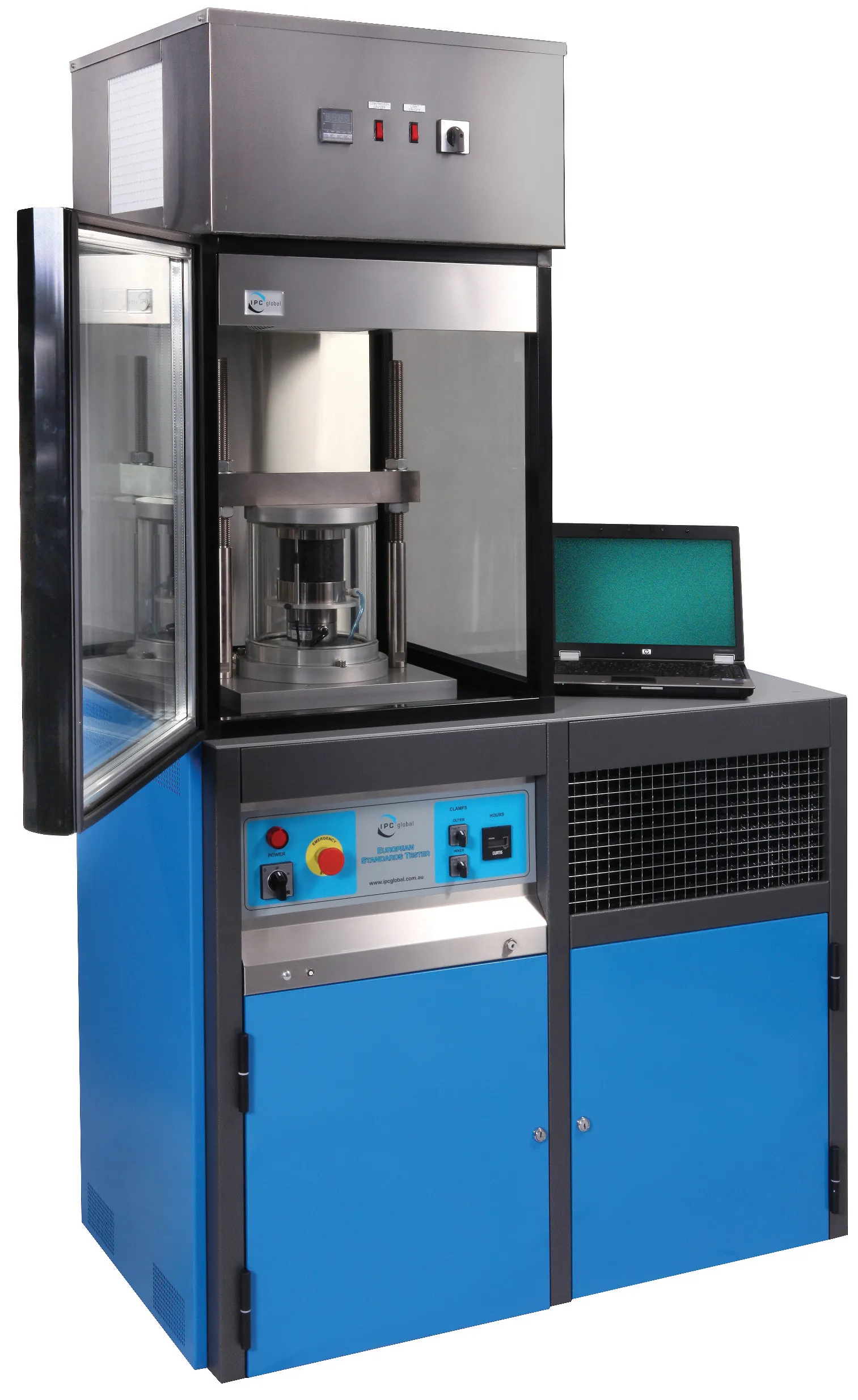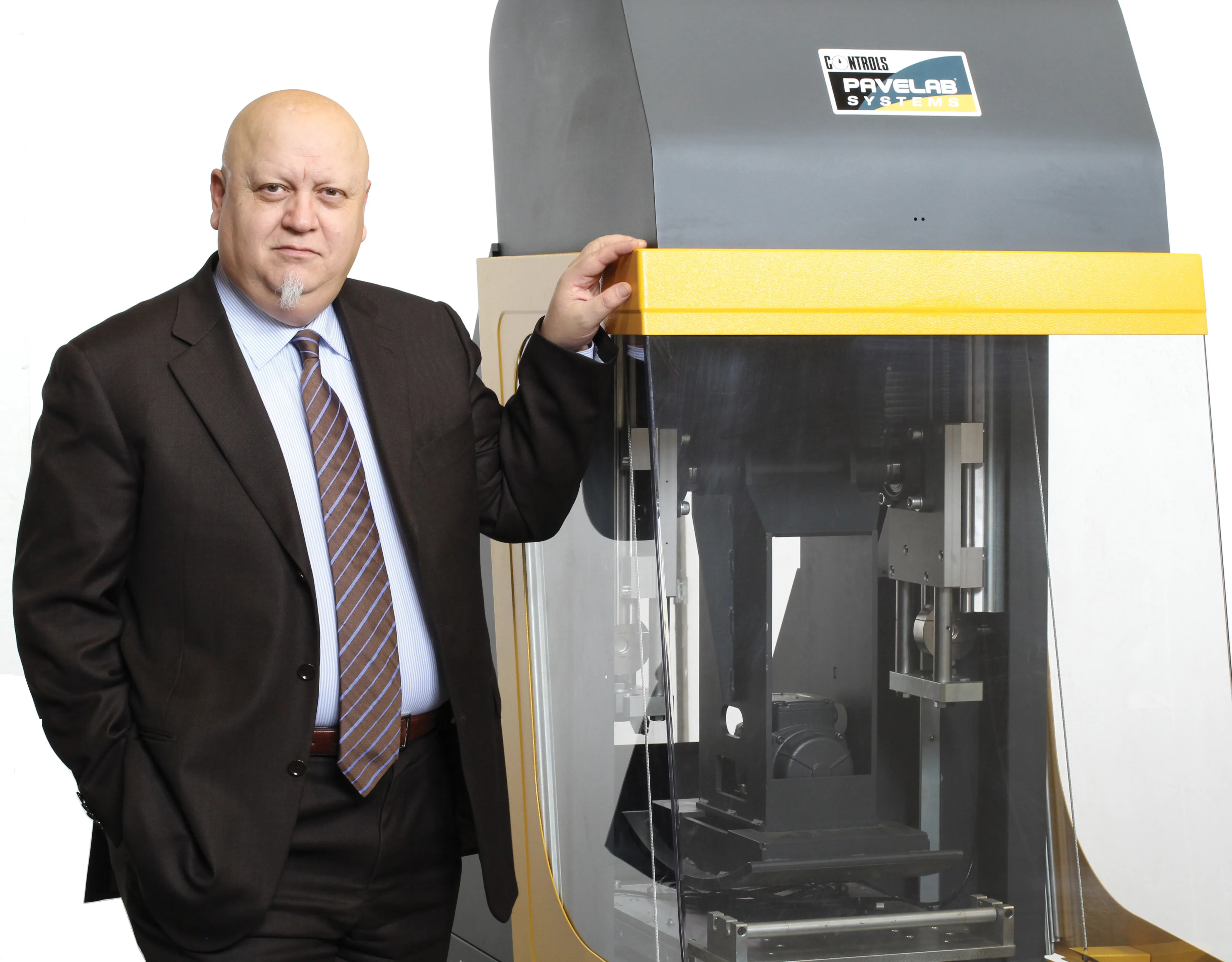CONTROLS France is increasingly moving into north African markets with its testing equipment for bitumen, concrete and soils. “Algeria recently built the new highway from east to west so there has been a good demand for testing equipment,” says general manager Guy Margraff. “And in Morocco we have seen several private laboratories opening in recent years, who need to equip themselves with the appropriate equipment.” Among the machines that Margraff is showing at INTERMAT 2015 are the AUTOMAX E-Modulus for d
April 22, 2015
Read time: 2 mins










